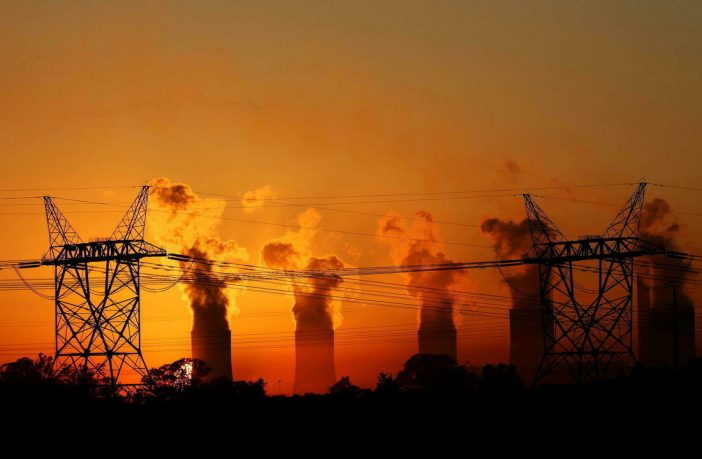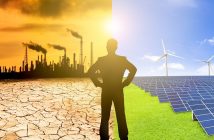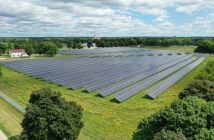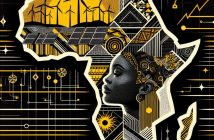Opinion
- This unholy trinity of pandemic, politics and power is linked, in practice and in our consciousness.
- Covid and politics are kind of out there, but Eskom, as in “no power to the people” is in your face, from noon to 2pm tomorrow, to be precise.
Eskom is the heart of the minerals-energy complex that is central to our economy, and has been so for a century. They who controlled the golden goose of the minerals-energy complex controlled the economy.
In the beginning, then-general Jan Smuts persuaded electronic genius Hendrik van der Bijl to quit US Western Electric and to become adviser in the Department of Mines and Industries, from which base he founded Escom and then Iscor as part of the state-owned commanding heights of the economy. On the other side was the Anglo-American behemoth that drove the private sector. Outside the majority, marginalised, if not surplus. Escom became the Eskom monopoly, and boasted that it was among the best of breed, like First World, you know.
Come 1994, and a battle for control of the minerals-energy complex ensued. Anglo made for the plane. Sourcing, moving and selling coal, iron and uranium; sourcing, manipulating and selling contracts for everything became the new artillery. All part of a necessary agenda of inclusion to correct prior exclusion. The new government gained increasing respect when the Mbeki administration stabilised the economy. The insult that Mickey Mouse was wearing a Trevor Manuel watch was kicked into touch where it belonged.
But the dream of an African renaissance of good governance was trashed in the corridors of power, as corrupt practice became a runaway gravy train. The late ANC MP Ben Turok commented that the new bourgeoisie was driving a careening locomotive that would crush all in its path. “Get out of the way,” he advised.
This was most evident in the destruction of Eskom, which the public experienced as death by a thousand cuts. Skilled staff were driven out; an ever-increasing wage bill and corruptly inflated supplier costs displaced the maintenance budget; quality control went out the window; pilfering, looting and outright sabotage became normalised. The golden goose ceased to lay eggs, and was starved nearly to death.
The state response was to look the other way. Development economist Albert Hirschman would have scratched his head in amazement. He taught that consumers exercise choice, and have the option of “exit” when their needs are not satisfied. The idea of exit could be extended to organisations and communities, who might withhold their labour, or votes. Such denial could take the form of complaint, or “voice” that might even become violent. Burning tyres anyone? But the idea that the state could exit? Unglaublich! Impossible! Cold comfort is that the state has not packed for St Petersburg. It does function, albeit selectively. But in terms of safety and security, barely. Drive through Gugulethu and observe the security gates and burglar bars. None are safe unless all are safe.
In my humble view, one of our fundamental problems is the selective exit of the state as demonstrated in allowing public violence to go unchecked; in allowing the rail network to become a decentralised hardware network that allows everyman to obtain building supplies free of charge, or risk; in condoning the looting of the state.
Now to André de Ruyter. Those who criticise the Eskom CEO might reflect on the magnitude of what he must do to halt the death spiral. He brings experience in heavy industry gained here and abroad, but does he have the political nose to navigate the interest groups that are content with the status quo? Think of the National Union of Mineworkers whose members mine coal, and whose allies own coal trucks or manage migrant mine labour. Think of the new class of miners made multimillionaires once they transitioned from being civil servants to serving themselves. Think of old interests who are happy to enjoy their dividend streams. Think of Eskom employees, among the highest paid in the world. And where is the state? Made for the exit.
And yes, we want a just transition. And yes, a hydrogen economy would be clean. Would it? Not if you use coal to produce hydrogen. That’s impossible. Unglaublich! And clean coal? Yes, we believe in Santa Claus. And the tooth fairy.
This catastrophe reminds of Lee Kuan Yew, founding statesman of Singapore, who summed up his life’s work in the book From Third World to First, Singapore 1965-2000.
The Eskom debacle might be summarised as From First World to Third.
It does not have to be so.
Author: Michael Kahn

Dr Michael Kahn is Extraordinary Professor in the Centre for Research on Evaluation, Science and Technology at Stellenbosch University, and a member of the DST-NRF Centre of Excellence in Scientometrics and Science Policy
Disclaimer: The articles and videos expressed in this publication are those of the authors. They do not purport to reflect the opinions or views of Green Building Africa, our staff or our advertisers. The designations employed in this publication and the presentation of material therein do not imply the expression of any opinion whatsoever on the part Green Building Africa concerning the legal status of any country, area or territory or of its authorities.











